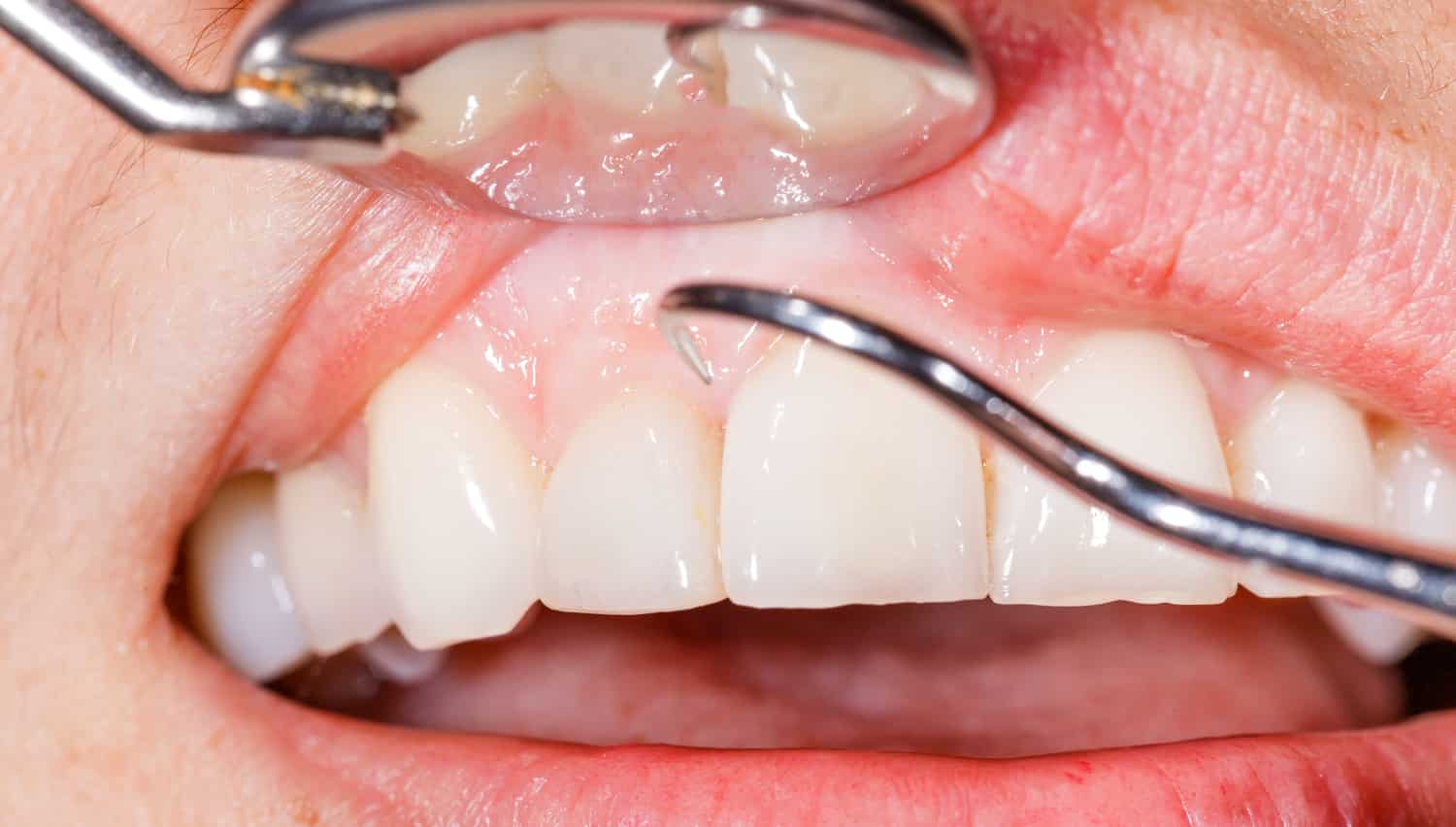Your gums play a significant role in your oral health and it’s important to take care of them. Unfortunately, periodontal (gum) disease is more common than you may think. A recent report from the Centers for Disease Control and Prevention (CDC) found that 47.2% of adults over 30 had some form of periodontal disease.
The good news is that gum disease is preventable in the majority of cases. If it is caught early, it is also treatable.
Stages of Gum Disease
To understand how to prevent periodontal disease, it’s helpful to know how it progresses. There are four different stages.
Gingivitis
In this phase, bacteria have not begun to damage your teeth. The disease affects the gingiva, which is the part of the gums around the base of your teeth. Your gums may be sore and more prone to bleeding while flossing.
Early/Slight Periodontitis
If gingivitis progresses without treatment, it becomes mild periodontal disease, also called periodontitis. At this point, your gums pull away from your teeth, creating small “pockets.” Bacteria will often invade these pockets and cause more bleeding and increased sensitivity.
Moderate Periodontitis
As bacteria continues to invade pockets between your gums and your teeth, your teeth start to loosen. Bone loss begins to occur at this point.
Advanced Periodontitis
At this point, bacteria has caused severe destruction of your teeth and jaw bone. Advanced periodontal disease is extremely painful and the risk of tooth loss is high.
Preventing Periodontal Disease
It’s essential to take the steps to prevent gum disease before it occurs. Although it can be treated in the early stages, it is better for your oral health to avoid the issue altogether.
You should:
- Practice good dental hygiene. Brush twice a day and floss once a day.
- Avoid smoking, as this can increase your risk.
- See your dentist every 6-12 months for cleanings. You may need to visit more often if you have an increased risk of gum disease due to a medical condition or medication you are taking.
Gum Disease Treatment
For Gingivitis
When gum disease is in its earliest stage, it can often be reversed with a professional cleaning and adjustments to your home dental care routine.
For Periodontitis
To treat periodontitis, it is necessary to use a type of deep cleaning called scaling and root planing. This removes plaque buildup below your gum line. Depending on the severity, you may also need to schedule additional cleanings throughout the year and/or take antibiotics.
Restorative Dentistry
If your gum disease has progressed to the advanced stage, we may recommend more intensive dental care. You may have lost some teeth by this time and others may need to be extracted. We will work with you to develop a plan to restore your smile, which may include dental implants. Our restorations are realistic and tailored to you.
Schedule Dental Care
Consistent visits to your dentist can help prevent gum disease and reduce the need for more extensive treatment later on. Dr. Atty Smith is here to help you care for your teeth and gums. We treat patients of all ages.


